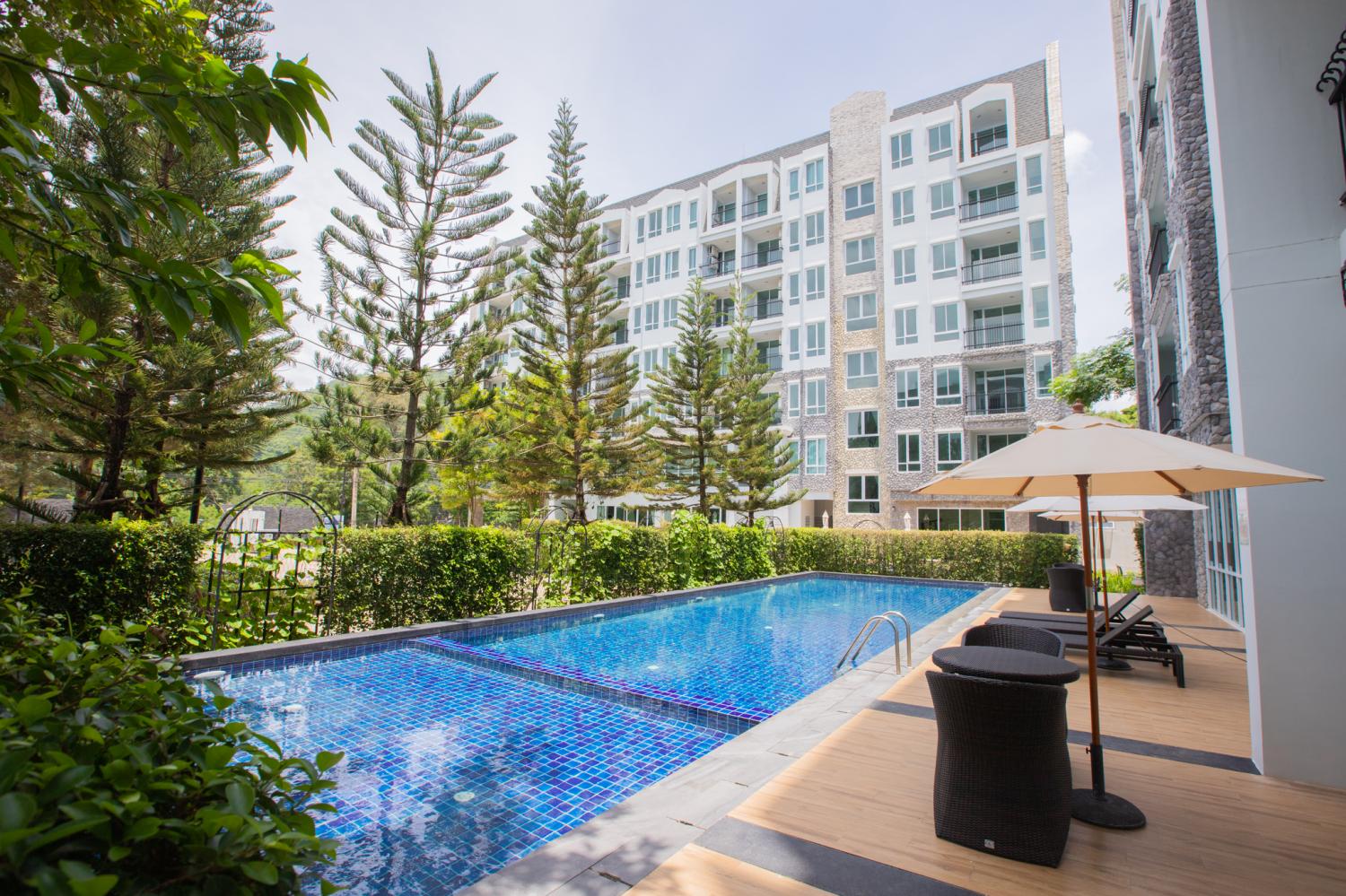
C.P. Land Plc, the 39-year-old property arm owned by the Chearavanont family, is making a big revamp to fight post-pandemic threats, including a rapid change of people's lifestyles and a new generation of consumers.
The idea of refreshing C.P. Land was initiated by Thippaporn Ahriyavraromp, the youngest daughter of Thailand's richest man Dhanin Chearavanont, who is a senior chairman of Charoen Pokphand (CP) Group and C.P. Land's major shareholder.
Mr Dhanin approved the ventures related to property development, including DTGO Group and Magnolia Quality Development Corporation Ltd (MQDC), which have proven successful.
"Our team was assigned [by Mrs Thippaporn] early in the year to help upgrade C.P. Land," said Keerati Satasook, chief strategy officer of C.P. Land and executive consultant to the chief executive of MQDC.
Mr Keerati and a few of his colleagues joined C.P. Land six months ago in the strategy office, a new department set up for his team, while his position and team at MQDC remain unchanged.
STRATEGIC INITIATIVES
The strategy office supervises the finance, accounting, HR, legal, marketing and sales departments to drive the company towards its goal to be a sustainability leader in the industry, he said.
Starting with Mr Keerati's crew from MQDC, the team totalling 30 people comprises staff from other departments and new recruits, including those from the CP Future Leaders Development Program who come with fresh ideas.
"People in the program will develop innovations and new business ideas to fine-tune product solutions," said Mr Keerati. "We also plan to apply key concepts from MQDC such as well-being and quality, while adding a 10-year warranty for products."
In the strategy office, seven people are allocated for marketing, six for design, six for new innovation, five for business development, three for construction standards, and four to meet CP standards. The last group is led by an advisor from MQDC.
"The goal of the strategy office is to change the working processes, the staff's mindset and customers' perceptions," he said.
"We want to have professional management through a blend of experienced staff and new workers to make quickly, keeping up with market trends."

SELF-DISRUPTION
"Pandemic infections have improved, but the virus comes with threats," said Mr Keerati. "The market has changed rapidly as new target groups emerge. Developers should no longer cling to the same old players or customer groups."
He said lifestyles were changing before the pandemic, but outbreaks just accelerated those trends, such as use of office space and time spent at malls, at home and online.
"The pandemic sped up these trends across all industries," said Mr Keerati.
Building a lifestyle-related property business requires research and study, with a revamp needed to prepare C.P. Land for its new target customer groups, he said.
"Within the next four months, we have to change by finding products focused on customers. This requires innovation for a new market to rebrand the firm's image so it is sustainable over the long run," said Mr Keerati.
C.P. Land is managing its portfolio, which includes income-generating assets and several land plots nationwide.
"Assets with potential will be kept for renovation or development in the future. They won't be divested or put into joint ventures," he said.
The company is focused on business sustainability as it aims to list on the Stock Exchange of Thailand in three years, targeting more than 5 billion baht in revenue at listing, said Mr Keerati.
"Overseas expansion is the next milestone," he said. "We chose a new route for C.P. Land and are upgrading the vehicle with more horsepower. Customers going along for the ride should be comfortable and happy."
ENHANCING STRENGTHS
While exploring C.P. Land, Mr Keerati found key strengths to enhance.
The company was founded in 1983 by Mr Dhanin and his aide Sunthorn Arunanondchai, who became C.P. Land's president and chief executive.
With 1,325 staff, the firm currently has registered capital of 3.63 billion baht.
Its strength is a variety of property businesses nationwide, comprising residential development with more than 20 low-rise condo projects in 23 provinces, as well as single detached houses in Min Buri and townhouses in Si Racha, Chon Buri.
C.P. Land owns 11 hotels in the provinces and one in Bangkok under the Fortune brand, three office towers in inner city Bangkok and several in seven major provinces. It also owns Fortune Town mall in the Rama IX Road area, a convention centre in Khon Kaen, and an industrial estate in Rayong.
The company's total assets are valued at more than 25 billion baht, of which the majority totalling 11 billion baht are shopping malls and Bangkok office towers registered in the C.P. Tower Growth Leasehold Property Fund. The second-largest asset group is office towers in provinces, worth 4.1 billion baht, followed by residential inventory worth 3.92 billion, hotels at 3.1 billion, industrial estates at 1.7 billion and convention centres at 1.18 billion.
C.P. Land's debt is low, with a debt-to-equity ratio of only 0.3 times, giving it more opportunities to buy new land plots for development or acquire new assets.
"To make C.P. Land a sustainability leader offering smart product solutions, support from CP Group and synergy with True Corporation Plc would help," said Mr Keerati.







